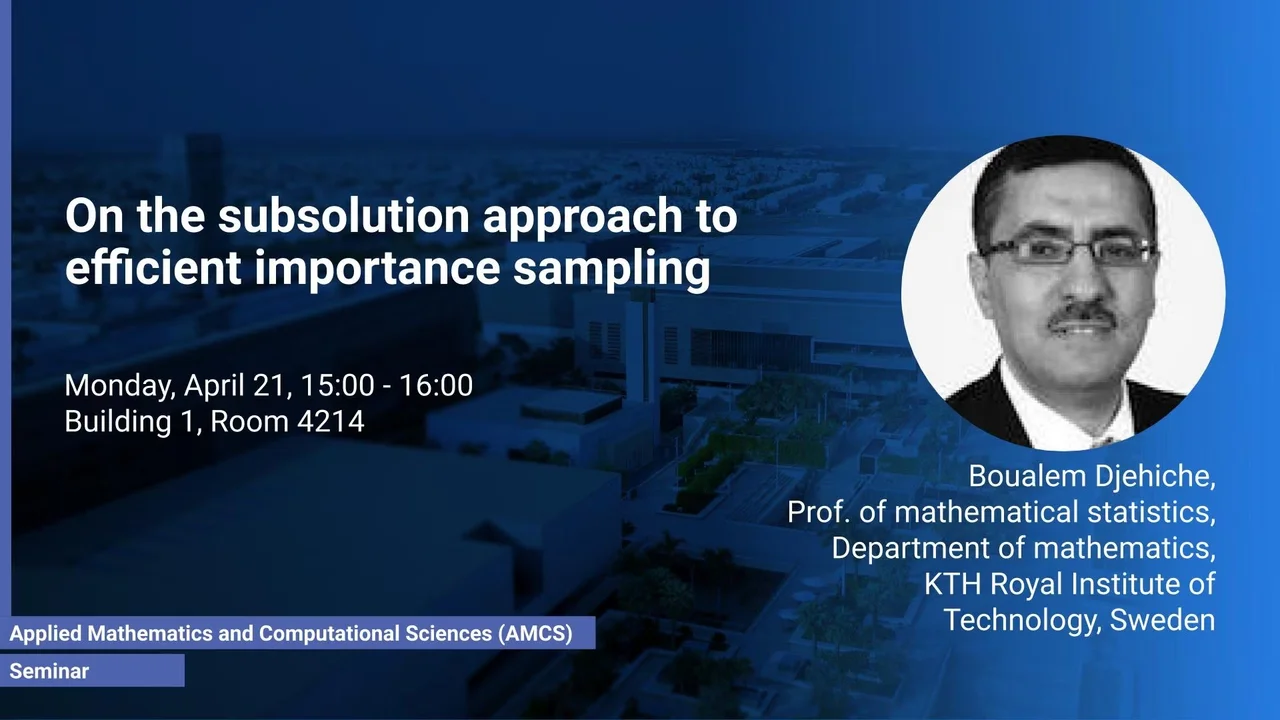
On the subsolution approach to efficient importance sampling By Prof. Boualem Djehiche (KTH, Stockholm, Sweden)
The widely used Monte Carlo simulation technique where all the particles are independent and statistically identical and their weights are constant is by no means universally applicable. The reason is that particles may wander off to irrelevant parts of the state space, leaving only a small fraction of relevant particles that contribute to the computational task at hand. Therefore it may require a huge number of particles to obtain a desired precision, resulting in a computational cost that is too high for all practical purposes.
Overview
Abstract
The widely used Monte Carlo simulation technique where all the particles are independent and statistically identical and their weights are constant is by no means universally applicable. The reason is that particles may wander off to irrelevant parts of the state space, leaving only a small fraction of relevant particles that contribute to the computational task at hand. Therefore it may require a huge number of particles to obtain a desired precision, resulting in a computational cost that is too high for all practical purposes. A control mechanism is needed to force the particles to move to the relevant part of the space, thereby increasing the importance of each particle and reducing the computational cost. Importance sampling technique offers a way to choose a sampling dynamics (the main difficult part) to steer the particles towards the relevant part of the state space. In this talk I will review some recent results on the so-called subsolution approach to Importance Sampling that is able to tune the sampling dynamics at hopefully lower costs.
Brief Biography
Boualem Djehiche received his PhD in Mathematics from KTH Royal Institute of Technology, Stockholm, in 1993. Since the year 2001 he is a Professor of Mathematical Statistics at KTH Royal Institute of Technology, Stockholm. His main research interests are in the area of Stochastic Analysis and include the Theory of Large Deviations, Stochastic Control and Optimization, with applications in Insurance Mathematics, Mathematical finance and Mathematical Epidemiology.
Refreshments: Available @ 02:45 pm
